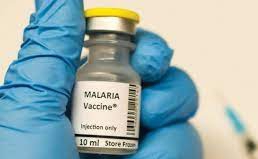UNICEF’s milestone achievement in child survival has been marked by the successful delivery of over 43,000 doses of the R21/Matrix-M malaria vaccine to the Central African Republic (CAR) via air transport.
This delivery is just the beginning, as an additional 120,000 doses are set to arrive in the coming days.
CAR became the first country to receive the R21 malaria vaccine for routine childhood immunization, a significant step forward in the fight against malaria and the protection of children’s lives.
The World Health Organization (WHO) has recommended the use of the R21 vaccine, making it the second malaria vaccine to receive such recognition for children living in areas where the disease is endemic. Alongside the RTS,S vaccine, there is now an ample supply of vaccines available to scale up malaria vaccination efforts in Africa. The funding for the rollout of both vaccines is provided by Gavi, the Vaccine Alliance.
Leila Pakkala, the Director of UNICEF Supply Division, expressed her enthusiasm, stating, “With the availability of two products, we now have the means to significantly improve child survival and overall health. Previous concerns regarding vaccine supply meeting demand are now a thing of the past. Our main focus is to ensure that every child at risk receives these life-saving vaccines.”
Both the R21 and RTS,S vaccines have proven to be safe and effective in preventing malaria in children. The RTS,S vaccine has already been administered to over 2 million children in Ghana, Kenya, and Malawi during a successful four-year pilot program, which resulted in a 13% reduction in all-cause mortality.
Malaria remains one of the deadliest diseases globally, claiming the lives of nearly half a million children under the age of 5 in Africa each year.
The Central African Republic is particularly burdened by malaria, experiencing one of the highest rates of malaria incidence worldwide. In 2022 alone, the country reported an estimated 1,733,000 malaria cases, averaging around 4,747 cases per day. Tragically, the disease also claimed approximately 5,180 lives throughout the year, equating to 14 deaths per day.
Dr. Sania Nishtar, the CEO of Gavi, the Vaccine Alliance, emphasized the significance of having two safe and effective vaccines available, stating, “Greater supply security and the ability to meet countries’ needs are the most crucial factors. It is imperative that countries with the highest potential for impact can access these vaccines, saving thousands of lives annually and providing relief to families, communities, and entire healthcare systems.”
In addition to the Central African Republic, other countries such as Chad, Côte d’Ivoire, the Democratic Republic of Congo, Mozambique, Nigeria, South Sudan, and Uganda are actively preparing to receive R21 vaccine shipments.
The RTS,S vaccine has already been delivered to eight countries, including Benin, Burkina Faso, Cameroon, Ghana, Kenya, Liberia, Malawi, and Sierra Leone. These countries have integrated the vaccine into their routine child immunization programs as part of their national malaria control plans. Burundi and Niger are next on the list to receive RTS,S shipments.
The delivery of vaccines to countries, which is made possible through the support of the Vaccine Alliance, depends on government requests and readiness to incorporate the vaccines into routine immunization programs.
Gavi, UNICEF, WHO, and other partners are working together to assist governments in their preparations for receiving and implementing the vaccines. This includes supporting countries in developing vaccine implementation plans and communication strategies, providing training for healthcare workers and engaging with communities, as well as ensuring sufficient cold chain capacity.
Dr. Kate O’Brien, the Director of WHO’s Department of Immunization, Vaccines and Biologicals, highlighted the importance of malaria vaccines in comprehensive national malaria control plans. She stated, “The introduction of malaria vaccines, alongside other interventions such as bed nets, indoor residual spraying, chemoprevention, diagnosis, and prompt treatments, will significantly reduce childhood mortality caused by malaria. With the inclusion of the R21 vaccine in country immunization programs alongside the RTS,S vaccine, the scale-up of malaria vaccination across Africa, where malaria remains a leading cause of childhood death, will continue. The demand for malaria vaccines also presents an opportunity to administer other childhood vaccines, further increasing the number of lives saved.”
Malaria vaccines are a crucial addition to the fight against this disease. Careful planning is essential to ensure the successful introduction and integration of these vaccines, along with other interventions, in order to maximize their impact on public health.”











